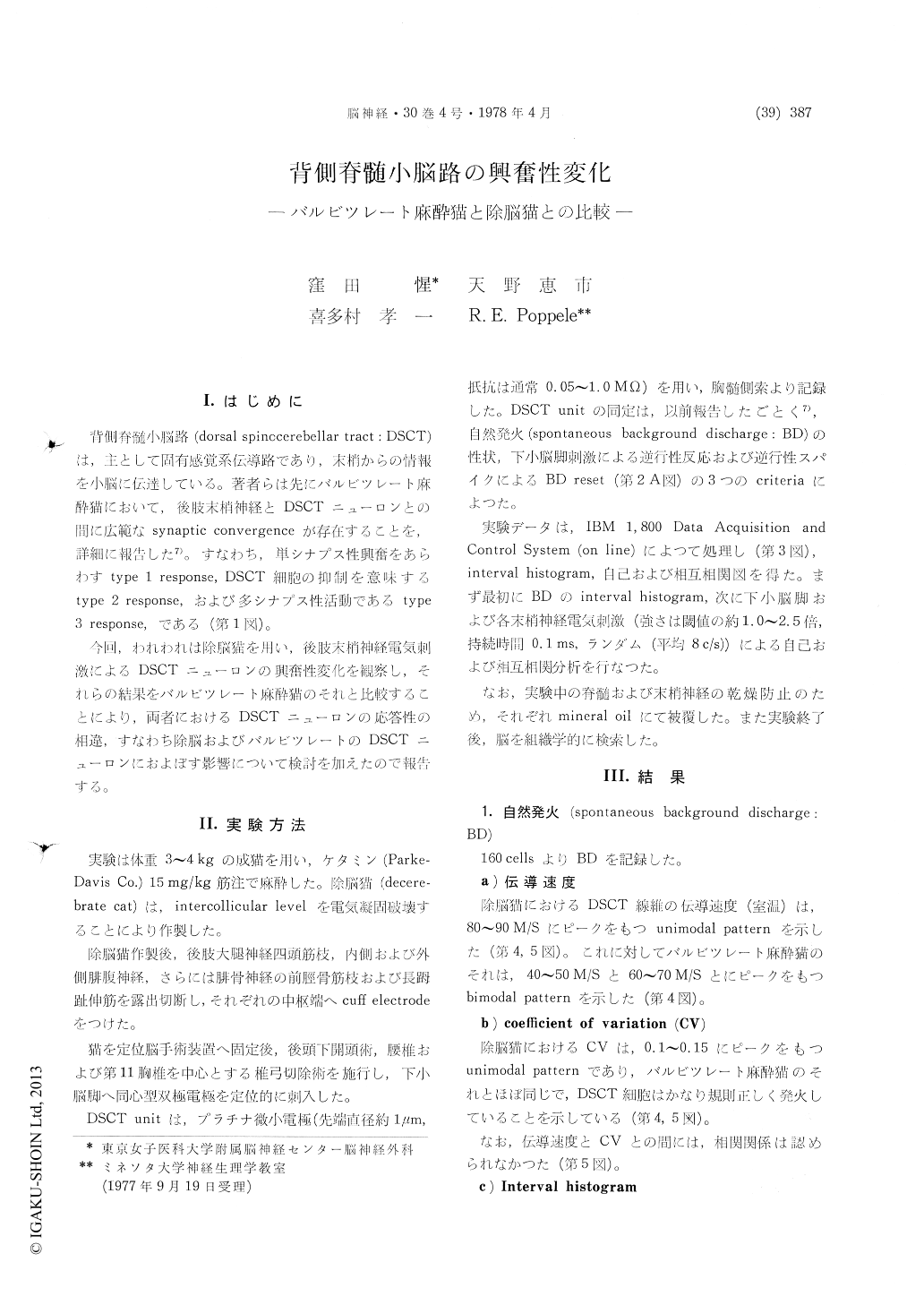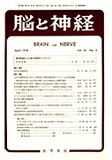Japanese
English
- 有料閲覧
- Abstract 文献概要
- 1ページ目 Look Inside
I.はじめに
背側脊髄小脳路(dorsal spinocerebellar tract:DSCT)は,主として固有感覚系伝導路であり,末梢からの情報を小脳に伝達している。著者らは先にバルビツレート麻酔猫において,後肢末梢神経とDSCTニューロンとの間に広範なsynaptic convergenceが存在することを,詳細に報告した7)。すなわち,単シナプス性興奮をあらわすtype 1 response, DSCT細胞の抑制を意味するtype 2 response,および多シナプス性活動であるtype3 response,である(第1図)。
今回,われわれは除脳猫を用い,後肢末梢神経電気刺激によるDSCTニューロンの興奮性変化を観察し,それらの結果をバルビツレート麻酔猫のそれと比較することにより,重両者におけるDSCTニューロンの応答性の相違,すなわち除脳およびバルビツレートのDSCTニューロンにおよぼす影響について検討を加えたので報告する。
Responses of dorsal spinocerebellar tract (DSCT) neurons to random electrical stimulation of peri-pheral nerves of the hindleg in decerebrate cats were studied using cross-correlation analysis of the output spike train.
The spontaneous background discharge in barbit-urate's cats had longer mean interspike interval than that in decerebrate cats, but there was no difference of the coefficient of variation in the two groups. This suggests that barbiturate has no effect on raising of the electrical threshold of the axon, but prolonging effect on interspike interval.
Comparison of the conduction velocity showed to be slower in barbiturate's cats, so barbiturate reduces the conduction rate of the axon.
The DSCT responses to the electrical stimulation of peripheral nerve in decerebrate cats were re-corded in 60%, while 85% in barbiturate's cats. The reasons for this difference are that the DSCT cells in decerebrate cats are tonically inhibited from the pontine and bulbar reticular formation and the function of brain-stem reticular formation is sup-pressed by the barbiturate.
Type 2 response in decerebrate cats, which re-presents reduced excitability of the DSCT cells, had inhibition with shorter initial peak latency and duration as compared to that in barbiturate's cats. This comforms the result of Eccles et al. that barbiturate in moderate dosage increases and pro-longs the presynaptic inhibition.

Copyright © 1978, Igaku-Shoin Ltd. All rights reserved.


